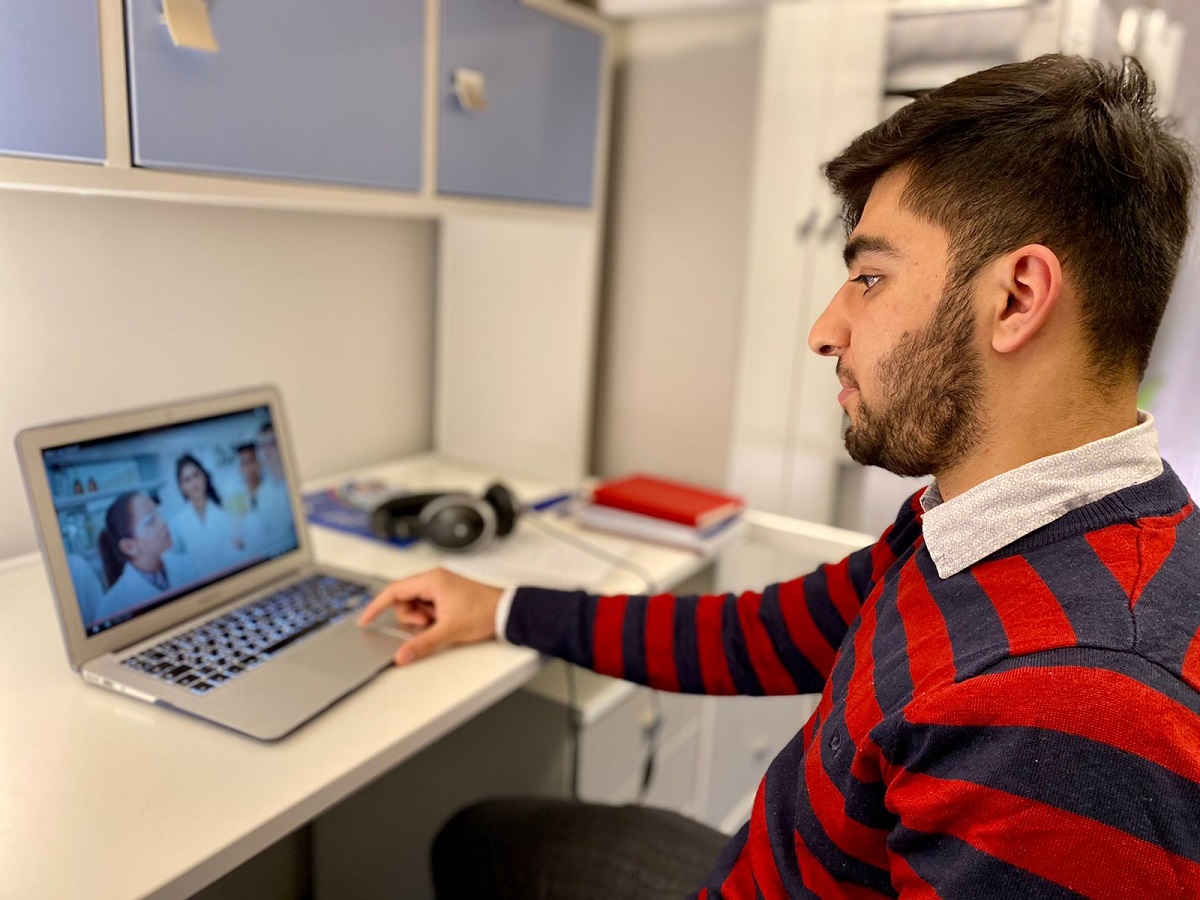RUDN University scientists and students about vaccination

The students heard the opinions of experts from different fields of sciences on the main issues of the COVID-19 pandemic and were able to ask questions on the topics of each of the reports.
What have you learned?
Plenary session
Found out:
- More than 34,000 people took part in the Sputnik V vaccine study — one of the largest studies in world practice;
- 5 translation students of the RUDN Medical Institute helped the Moscow City Center for AIDS Prevention and Control in the first months of the pandemic;
- 23 vaccines have already been approved in the world.
Understood:
- the safety of adenovirus-based vector vaccines is well studied;
- vaccination is the only way to stop the epidemic;
- to date, collective immunity is 45.7%, and if vaccination is not carried out, the country may lose more than 2 million people.
Section "Mental health — new conditions of interaction, work, study"
Found out:
- "truckers" are people with long-term post-ovoid syndrome who, even after six months, could not return to their previous lifestyle;
- from 10 to 50% of those who have had COVID-19 become "truckers";
- signs of a healthy personality: goals (meaningfulness) - immersion in activity; people (communication) - proactivity; temporary competence — not "introspection", but concentration on opportunities.
Understood:
- the peculiarity of the new coronavirus infection is multitropism - the virus affects many organs and systems of the human body;
- the incidence of postcovid syndrome is 30-35%;
- with COVID-19, there is a risk of psychogenic diseases.
Section "Student volunteers on the front line: firsthand"
Found out:
- more than 10 thousand volunteers took part in the campaign "Vaccination Assistants";
- The RUDN Volunteer Center processed 1,169 orders;
- RUDN volunteers helped students and teachers in the transition to a remote mode of study and work.
Understood:
- during peak days, the load at the RUDN volunteer center was up to 50 orders per day;
- a group of 70 volunteers was formed in the center;
- during the pandemic, the number of people willing to become a volunteer has increased.
https://www.rudn.ru/media/news/nauka/uchenye-i-studenty-rudn-o-vakcinacii
RUDN University summed up the results of the competition among scientific student societies and scientific circles. The GreenLab of the Institute of Ecology became the best Student Research Society, the second place was taken by the Institute of Foreign Languages, and the third place - the Faculty of Humanities and Social Sciences.
There are approximately 1,600,000 children in Russia with confirmed attention deficit hyperactivity disorder. The necessary therapy is not always available to their families due to cost or the lack of specialized centers nearby. Teachers and students at RUDN University and Altai State University have developed a special app for these children that increases attention and reduces anxiety using the color photostimulation method.
Student science and popularization tour club has been operating at the Institute of Environmental Engineering for five years now. It was established under the auspices of the GreenLab Student Scientific Society.
RUDN University summed up the results of the competition among scientific student societies and scientific circles. The GreenLab of the Institute of Ecology became the best Student Research Society, the second place was taken by the Institute of Foreign Languages, and the third place - the Faculty of Humanities and Social Sciences.
There are approximately 1,600,000 children in Russia with confirmed attention deficit hyperactivity disorder. The necessary therapy is not always available to their families due to cost or the lack of specialized centers nearby. Teachers and students at RUDN University and Altai State University have developed a special app for these children that increases attention and reduces anxiety using the color photostimulation method.
Student science and popularization tour club has been operating at the Institute of Environmental Engineering for five years now. It was established under the auspices of the GreenLab Student Scientific Society.